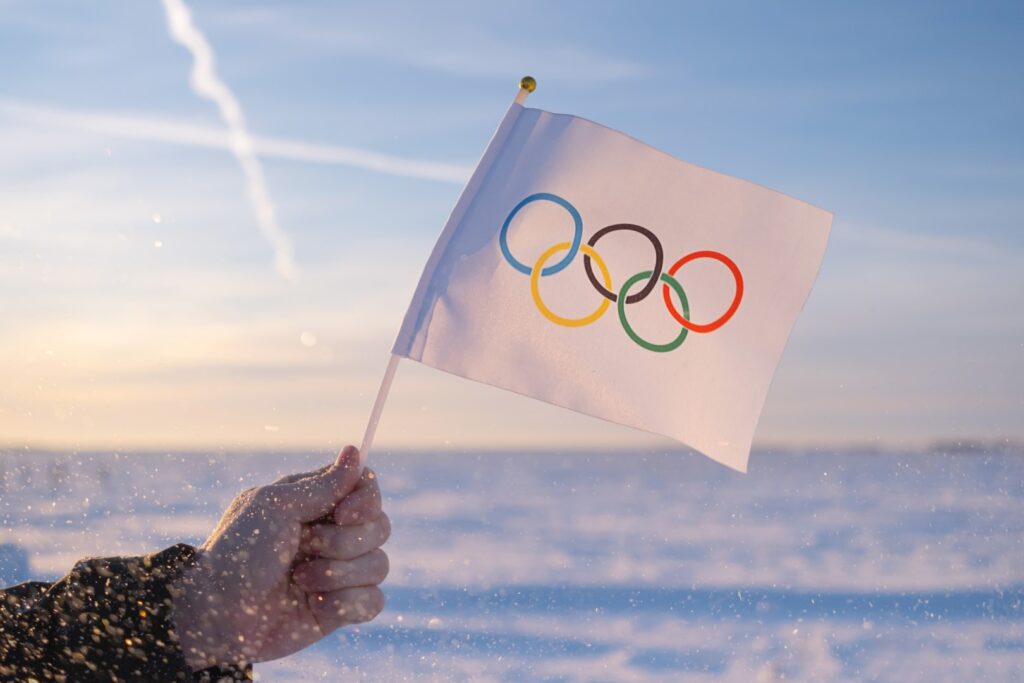The Olympics are undoubtedly one of the most widely watched and celebrated sporting events in the world. Every four years, athletes from around the globe come together to compete in a variety of events and showcase their skills, representing their countries and cultures on a global stage. The modern Olympics have a rich and storied history that dates back over a century and has left a lasting impact on the world of sports and beyond. In this blog post, we will explore the history and legacy of the Olympics, and celebrate 100 years of the modern Games.

Origins of the Olympics
The Olympics have their roots in ancient Greece, where athletic competitions were held in honor of the god Zeus. The first recorded Olympic Games were held in 776 BC and included events such as running, jumping, and throwing. The ancient Olympics continued for over a thousand years until they were abolished by the Roman Emperor Theodosius in 393 AD.
The modern Olympics were inspired by the ancient Games and were founded by the French educator Baron Pierre de Coubertin in the late 19th century. Coubertin was a firm believer in the power of sports to promote peace and understanding between nations and saw the Olympics as a way to bring people together across national and cultural boundaries.
The first modern Olympic Games were held in Athens, Greece, in 1896, and included athletes from 14 countries competing in 43 events. Since then, the Olympics have grown in size and scope, with thousands of athletes from hundreds of countries competing in a wide range of events.
The Olympics Through the Years
Over the past century, the Olympics have become an iconic symbol of sportsmanship, international cooperation, and cultural exchange. From the triumphs and tragedies of individual athletes to the broader geopolitical tensions that have shaped the Games, the Olympics have captured the attention and imagination of people around the world.
One of the defining moments in the history of the Olympics was the 1936 Berlin Games, which were held under the Nazi regime in Germany. The Games were used as a platform by Adolf Hitler and his supporters to promote their ideology of Aryan supremacy and to showcase their military might and political power. However, the Games also provided an opportunity for athletes from around the world to challenge these ideals, and demonstrate their own abilities and resilience in the face of oppression and prejudice.
Another important moment in Olympic history was the 1968 Mexico City Games, where African-American athletes Tommie Smith and John Carlos raised their fists in a Black Power salute during the medal ceremony for the 200-meter race. The gesture was intended to draw attention to the ongoing struggle for civil rights and social justice in the United States and to show solidarity with other oppressed groups around the world.
In recent years, the Olympics have continued to evolve and adapt to changing social and political contexts. For example, the 2012 London Games featured a record number of women athletes, and the 2016 Rio Games included a team of refugees competing under the Olympic flag. These developments reflect the ongoing efforts to promote inclusivity and diversity within the Olympics and to use the Games as a platform for social and political change.
Legacy of the Olympics
The legacy of the Olympics is multifaceted and far-reaching and extends beyond the realm of sports. One of the most significant legacies of the Olympics is its ability to bring people together across national and cultural boundaries and to promote understanding and cooperation between different groups.
The Olympics have also had a significant impact on the world of sports, inspiring new generations of athletes and coaches and pushing the boundaries of what is possible in terms of athletic performance. The Games have also helped to elevate certain sports to a higher level of prominence and visibility, and have provided a platform for athletes to achieve fame and recognition on a global scale.

Another important legacy of the Olympics is its role in promoting international development and cooperation. The Games have been used as a catalyst for urban and economic development, with host cities investing in infrastructure and facilities in preparation for the influx of athletes and visitors. The Olympics have also been used to promote international aid and development initiatives, with programs such as the Olympic Solidarity Fund providing support to athletes and sports programs in developing countries.
However, the Olympics have also been subject to criticism and controversy over the years, particularly around issues of corruption, commercialization, and athlete welfare. Some critics argue that the Olympics have become too focused on profit and spectacle, and have lost sight of their original values and goals.
Athlete activism has also become an increasingly prominent issue in the Olympics, with athletes using the platform of the Games to raise awareness about social and political issues. While some argue that athlete activism is a powerful tool for promoting change and advancing social justice, others criticize it as a distraction from the primary goal of athletic competition and a breach of political neutrality.
Looking Ahead
As the Olympics approach its 100th anniversary, there are many challenges and opportunities facing the Games in the years ahead. One of the key challenges will be to maintain the integrity and relevance of the Olympics in the face of changing social and political contexts and to adapt to new technologies and trends in sports and entertainment.

One potential area of growth for the Olympics is the incorporation of new sports and disciplines, such as e-sports and skateboarding. These developments reflect the evolving nature of sports and the need to remain relevant to younger generations of athletes and fans.
Another important challenge for the Olympics will be to address issues of athlete welfare and safety, particularly in the wake of the COVID-19 pandemic. The pandemic has highlighted the risks and vulnerabilities of large-scale sporting events and has raised questions about the feasibility and ethics of holding the Olympics in the midst of a global health crisis. Despite these challenges, the Olympics remain a powerful symbol of international cooperation and human achievement. From the ancient Games in Greece to the modern Olympics of today, the Games have captured the imagination and inspired the world for over a century. As we celebrate 100 years of the modern Games, let us reflect on the legacy of the Olympics and the many ways in which they continue to shape our world today.

